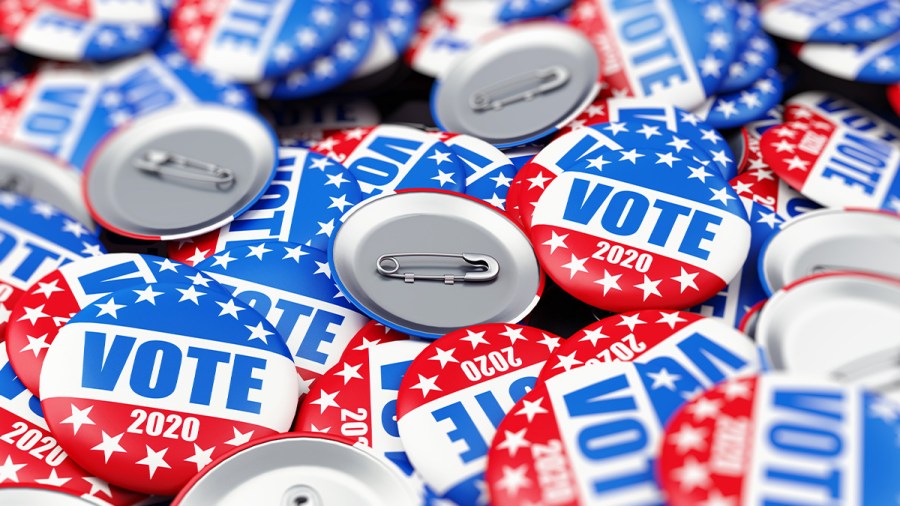It’s a lot harder to get out the vote during a pandemic

Political strategists and organizers are trying to find new ways to reach voters and potential voters while social distancing. Which is tough because research shows that in-person interactions are usually the most effective technique. Now, organizers are turning to the old idea of a turnout captain — a local volunteer who whips up voting interest — combined with targeted data and, sometimes, apps. And they’re finding that combination can really work.
I spoke with Marketplace’s Kimberly Adams, who covers money and politics. The following is an edited transcript of our conversation.

Kimberly Adams: Things like knocking on the doors of strangers to be in their face about a candidate does not work in a pandemic. And there seems to be a shift among the political strategists and the get-out-the-vote folks to really look at something that’s called “relational organizing.” I spoke with Karthik Balasubramanian. He’s at Howard University and works a lot with data and with campaigns on this idea of relational organizing.
Karthik Balasubramanian: Essentially, you make a list of your family members, friends and neighbors. And because of research, we know that the messenger really, really matters. Way more effective than TV, digital or radio is when you hear a pitch straight from someone that you know and trust.
Adams: And that makes these things a lot more effective, according to the research we’ve seen so far.
Molly Wood: Do apps like this exist now?
Adams: Sort of. There’s an app called Turnout Nation. The founder, Mark Mullen, was telling me that with this app, basically, it doesn’t necessarily push people to you, but you just say, “Hey, I want to get more people out to vote. Here are 10 of my friends and family that I am committing to help them get registered and help them turn out to vote.” And whereas a traditional campaign method of knocking on the doors of strangers can boost turnout by 2%, their method boosted turnout by about 13%.
Wood: Why is that? Because it’s more personal?
Adams: Not just because it’s more personal, but with Turnout Nation, for example, and a lot of the ways that this get-out-the-vote tech is being deployed for relational organizing, much of it is not associated with a particular campaign.
Mark Mullen: Most get-out-the-vote efforts are run by candidate campaigns. specifically. They tend to be focused on a huge amount of stranger-to-stranger contact in the last maybe month or three weeks before the election. But there are a lot of people who want to increase turnout and do other things to support American democracy year-round. And they don’t necessarily want to do it in the service of this or that candidate, and they don’t only want to do it just before elections.
Adams: So folks like Mullen, who work on this, say that not only are volunteers more likely to get involved when you strip out the politics, but they also say that people respond better as well when you’re just saying, hey, you should vote, as opposed to, hey, you should vote for this particular candidate.
Wood: This is a unique moment because of the pandemic, but it sounds like if it’s that effective, and if events maybe become less popular or good old-fashioned door-knocking becomes less popular, are we laying the groundwork for a different type of digital campaigning in the future?
Adams: I think there’s going to have to be a different type of digital campaigning. You can imagine some hesitancy by campaigns to use this turnout captain model that Mullen is highlighting because they don’t necessarily want everyone to turn out to vote. They want the people who are going to vote for their candidate to turn out to vote. And the individual campaigns are scrambling because our entire campaign infrastructure is built on these face-to-face interactions, and a lot of that is just out the window.
Related links: More insight from Molly Wood
Facebook is still dealing with an advertiser boycott over hate speech and misinformation on the platform and the way it’s decided to handle posts by President Donald Trump and ads by political figures, which has mostly been, do whatever you want and maybe give us some money. Last month, CEO Mark Zuckerberg announced that Facebook would start labeling posts that contained false or misleading information about elections. This week, some of those labels appeared, including one under a post by Trump that said mail-in voting would lead to the most corrupt election in our nation’s history, with the hashtag #riggedelection. The labels didn’t suggest the posts were true or false, and they just linked to information about how to vote. One law professor noted on Twitter that they weirdly look a little like an endorsement. Twitter also has declined to label posts from Trump that refer to corrupt or rigged elections. Facebook also flagged a few posts by presumptive Democratic candidate Joe Biden, including one that said, “vote out Donald Trump.”
Business Insider reports that Walmart, Geico, McDonald’s, AllState, Peloton and even Ikea have quietly paused their advertising on Facebook in July. The Wall Street Journal said Disney did the same. One ad executive said brands are assessing “whether we should continue defaulting to a platform that stands in opposition to consumer sentiment today.”
The future of this podcast starts with you.
Every day, the “Marketplace Tech” team demystifies the digital economy with stories that explore more than just Big Tech. We’re committed to covering topics that matter to you and the world around us, diving deep into how technology intersects with climate change, inequity, and disinformation.
As part of a nonprofit newsroom, we’re counting on listeners like you to keep this public service paywall-free and available to all.
Support “Marketplace Tech” in any amount today and become a partner in our mission.












